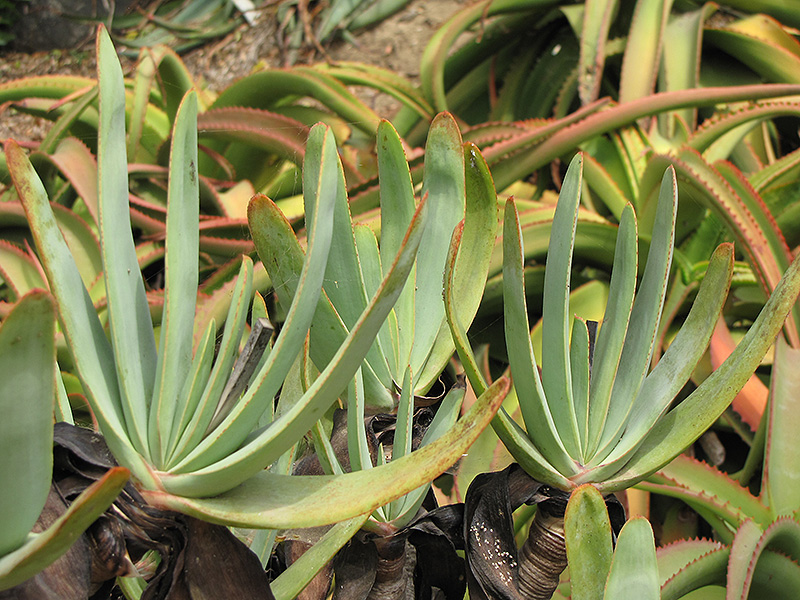Know Before You Go!
Get notified before our plants arrive in stores near you.
Plant Care Library
Plant Height: 6 feet
Flower Height: 8 feet
Spread: 6 feet
Sunlight:
![]()
Other Names: syn. Kumara disticha
Description:
A multiple branched variety with a shrubby habit; beautiful fan shaped clusters of succulent sword shaped leaves with rounded tips; produces erect spikes of tubular orange-coral flowers in winter and early spring; an amazing accent or screening plant
Features & Attributes
Fan Aloe features showy spikes of orange tubular flowers with red overtones rising above the foliage from late winter to early spring. Its attractive succulent sword-like leaves remain bluish-green in color throughout the year.
This is a multi-stemmed evergreen houseplant with an upright spreading habit of growth. Its wonderfully bold, coarse texture is quite ornamental and should be used to full effect. This plant usually looks its best without pruning, although it will tolerate pruning.
Planting & Growing
When grown indoors, Fan Aloe can be expected to grow to be about 6 feet tall at maturity extending to 8 feet tall with the flowers, with a spread of 6 feet. It grows at a slow rate, and under ideal conditions can be expected to live for approximately 40 years. This houseplant requires direct sun for optimal performance, and should therefore be situated in a room that gets bright sunlight for a good part of the day; it is not a good choice for rooms lit only by artificial light. It prefers dry to average moisture levels with very well-drained soil, and may die if left in standing water for any length of time. This plant should be watered when the surface of the soil gets dry, and will need watering approximately once each week. Be aware that your particular watering schedule may vary depending on its location in the room, the pot size, plant size and other conditions; if in doubt, ask one of our experts in the store for advice. It is not particular as to soil pH, but grows best in sandy soil. Contact the store for specific recommendations on pre-mixed potting soil for this plant.
There are many factors that will affect the ultimate height, spread and overall performance of a plant when grown indoors; among them, the size of the pot it's growing in, the amount of light it receives, watering frequency, the pruning regimen and repotting schedule. Use the information described here as a guideline only; individual performance can and will vary. Please contact the store to speak with one of our experts if you are interested in further details concerning recommendations on pot size, watering, pruning, repotting, etc.
-- THIS IS A HOUSEPLANT AND IS NOT MEANT TO SURVIVE THE WINTER OUTDOORS IN OUR CLIMATE --
A NetPS Plant Finder tool

